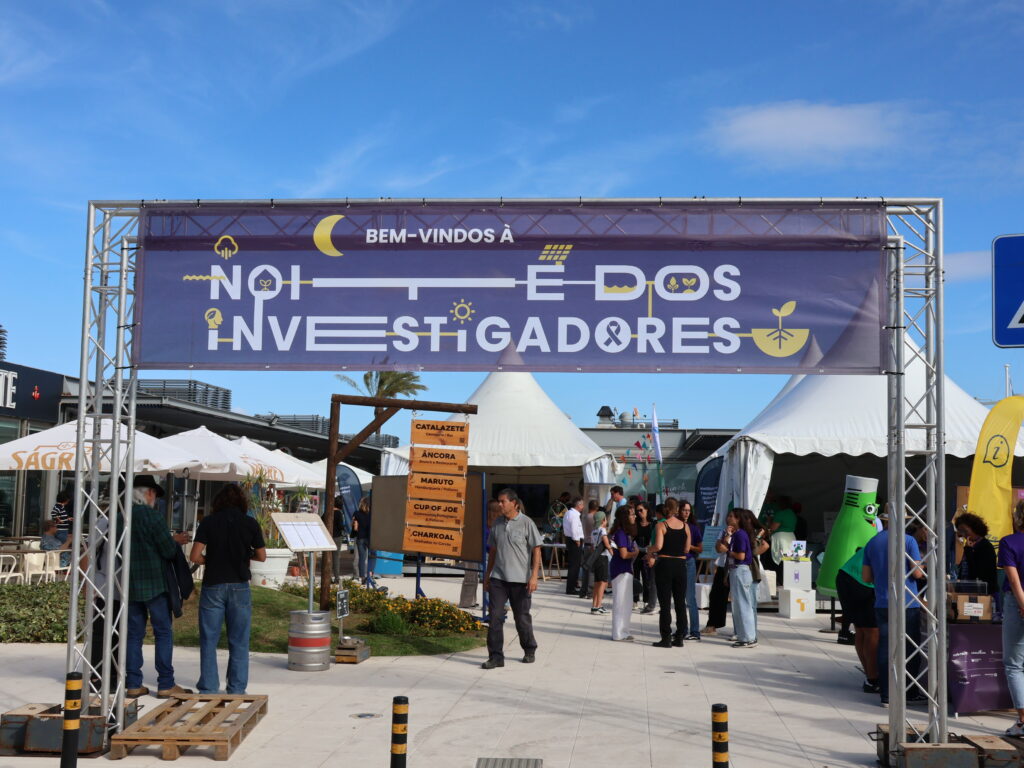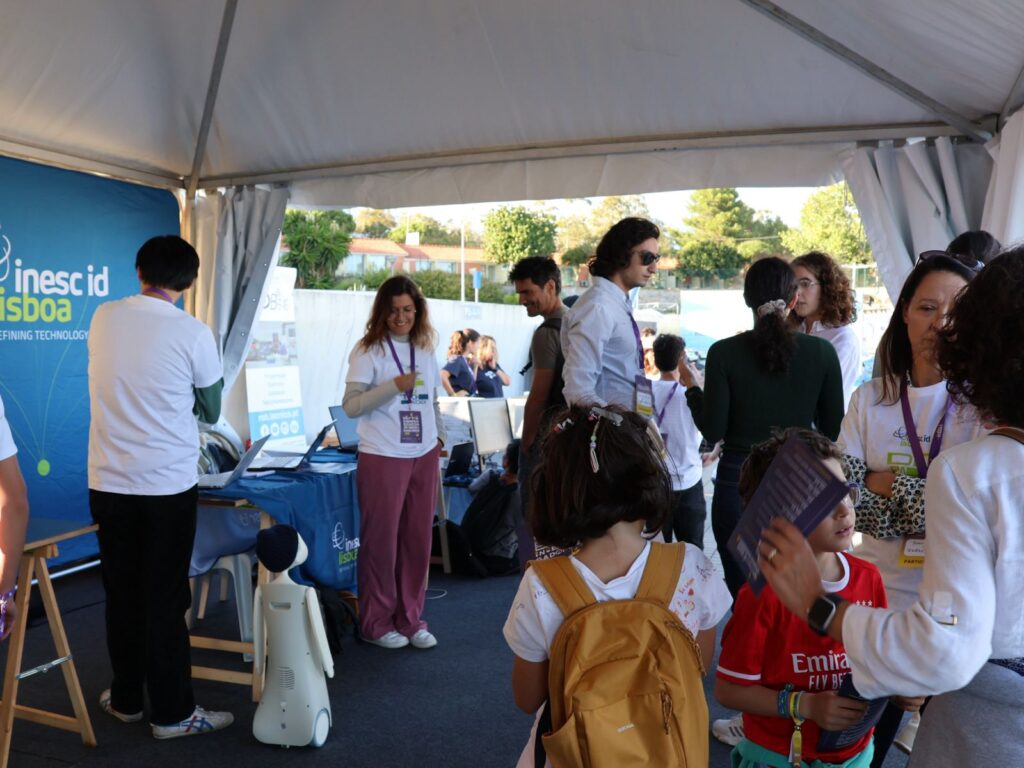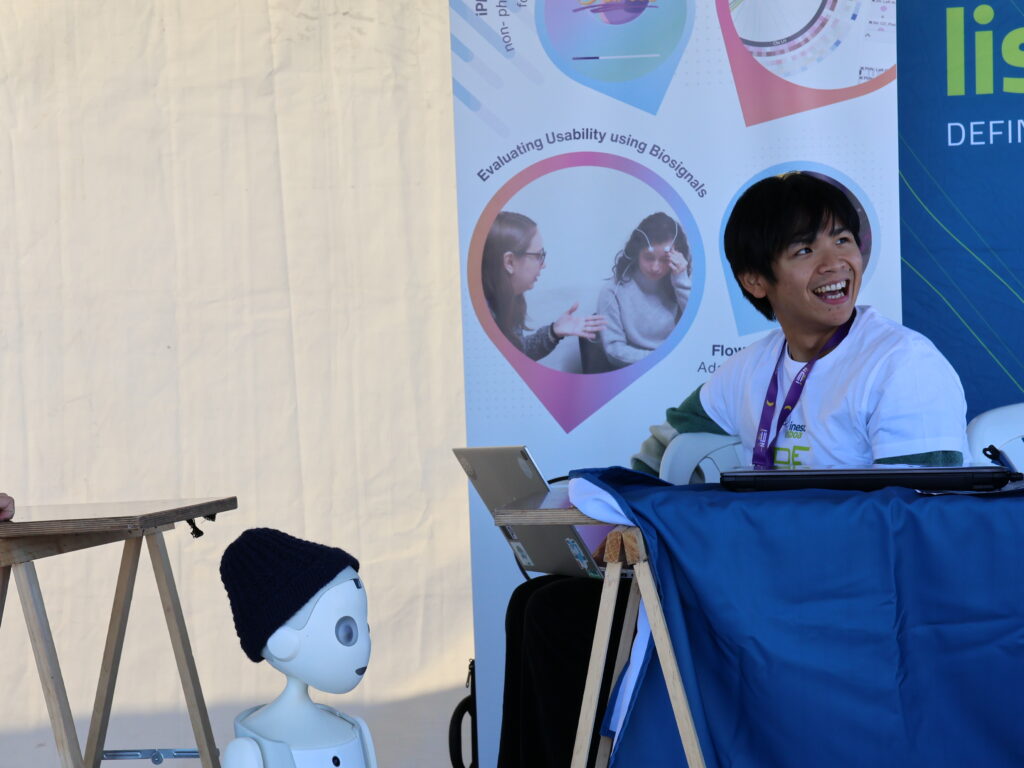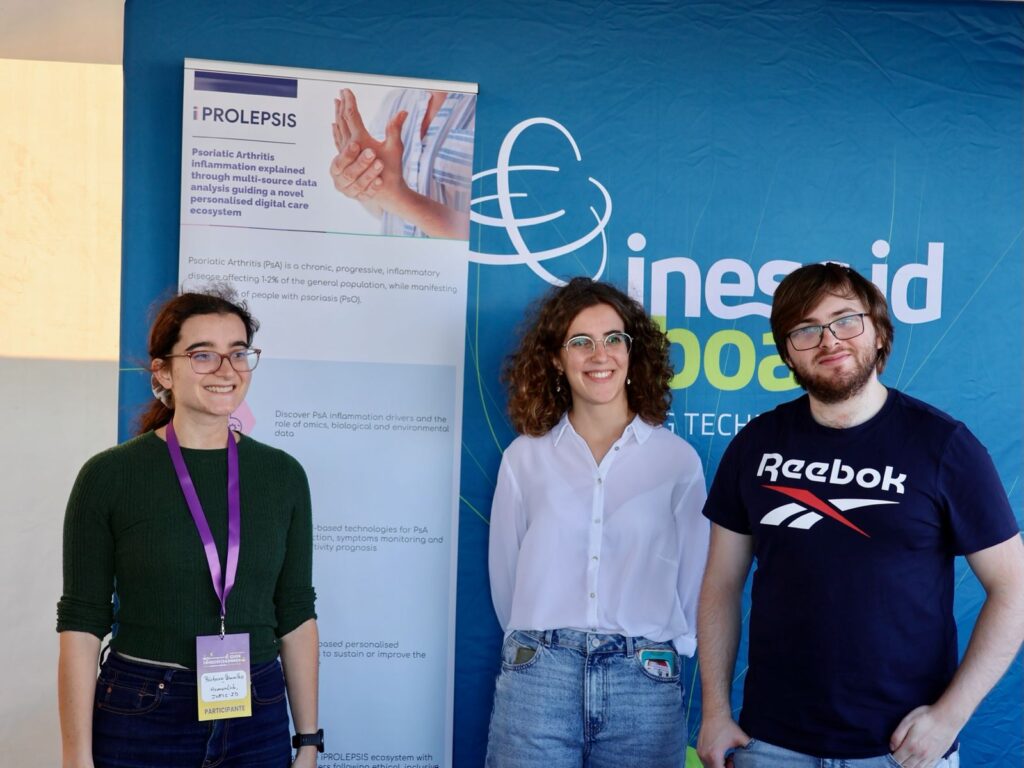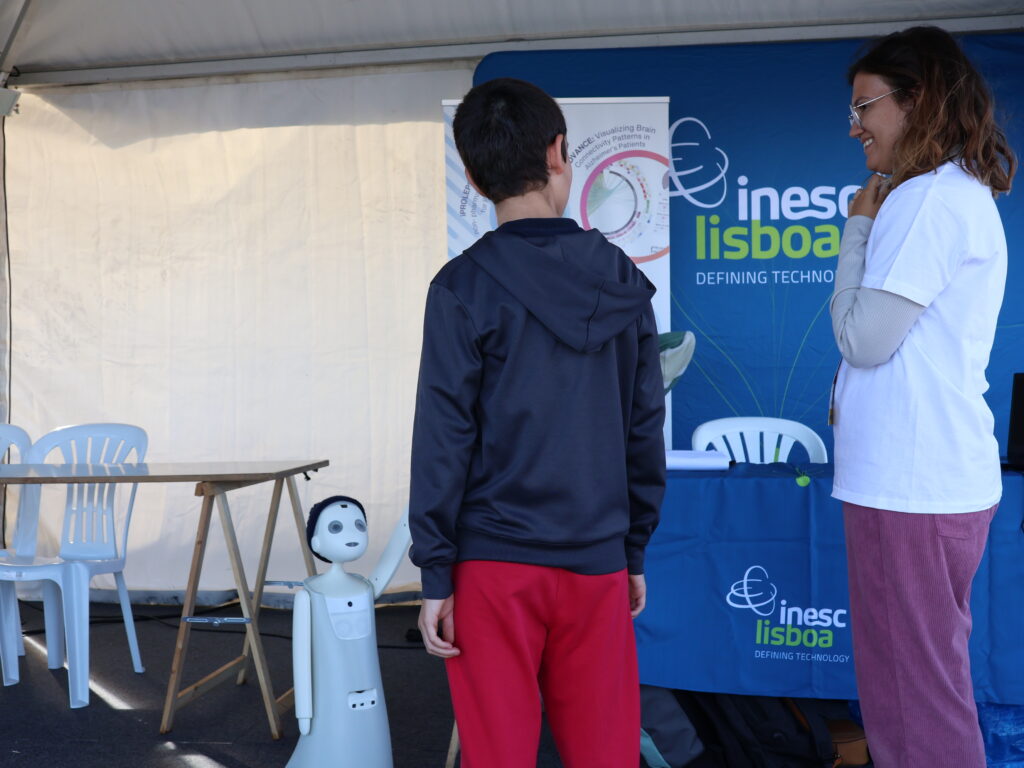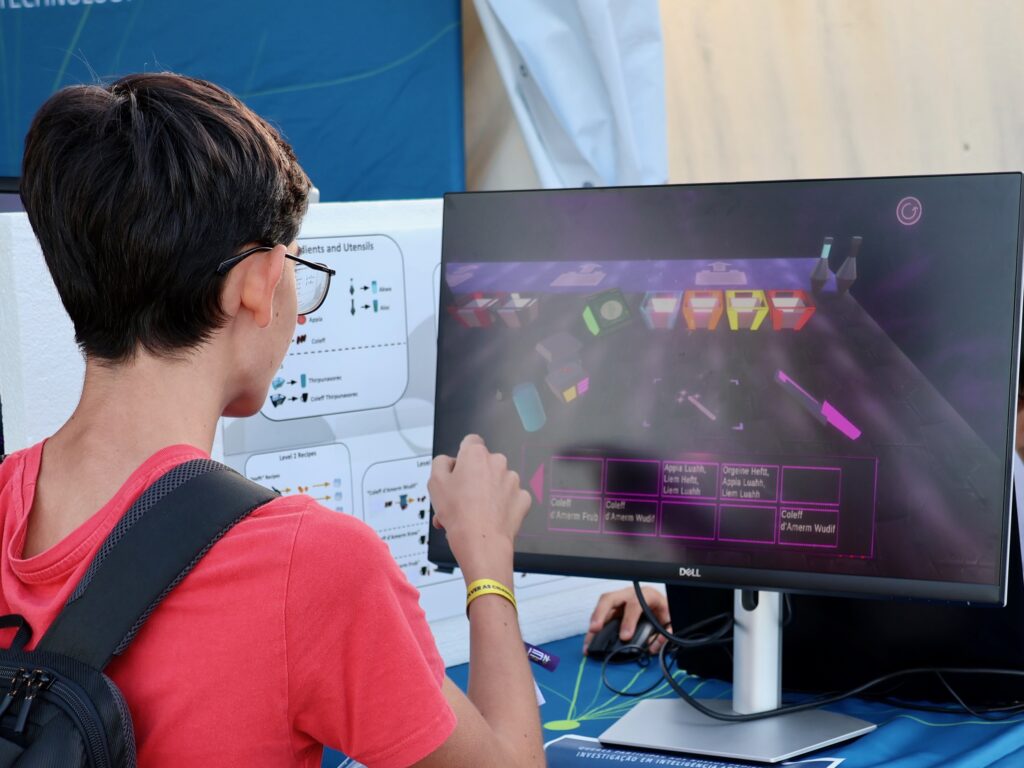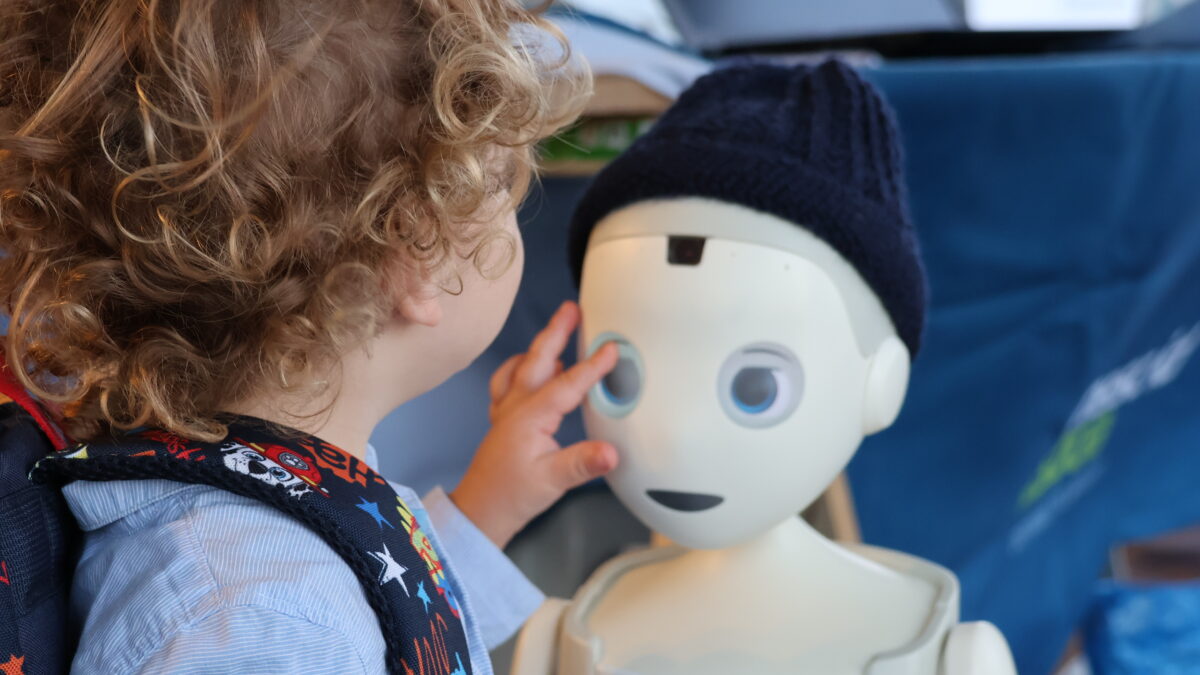
Image | © 2024 INESC-ID
Science, families and fun. European Researcher’s Night had it all!
To celebrate science across Europe is the goal of the European Commission’s initiative, European Researchers’ Night (NEI). And that’s exactly how it felt last Friday, the 27th, at Marina de Oeiras – a celebration!
At 12 years old, Renata is very sure of what she wants to be when she grows up. The eighth-grader likes Biology the most and wants to be a scientist or an astronaut. Accustomed to attending science outreach events, Renata visited INESC-ID’s booth at NEI, where she tested the Alien Bar game developed at Group of Artificial Intelligence for People and Society (GAIPS Lab), to explore cooperation between people. Throughout the afternoon, the researchers Samuel Gomes and Luís Costa, both regulars at such events, explained to visitors the concept behind these so-called serious games.
Spread across three tables, INESC-ID’s participation at NEI, which has been celebrated throughout Europe since 2005, included a demonstration of platforms to study the psychology behind cooperation and teamwork, games to help cope with psoriatic arthritis and a demo of a social robot, interacting with the attendees. We also had the project Engenharia para Todos, aimed at promoting skills in the fields of Science and Technology.
Although it was her first time participating in such events, PhD student and researcher Bárbara Ramalho from HUMAN Lab in Graphics and Interaction appeared completely at ease. Together with the master’s students Marta Vicente and Hugo Escobar, they showcased the game iPROLEPSIS, inviting volunteers to play while explaining how its tasks are designed to train wrist rotation or breathing—movements that are often affected in people with psoriatic arthritis.
Also in the games section, we had Inês Lobo, from GAIPS, displaying the collaborative game Geometry Friends, highlighting a study that explores human interaction with agents, exhibiting different levels of initiative – leader, follower, shift initiative.
Undoubtedly, the star of the show was Navel, our social robot, easily recognisable with its blue beanie and blinking eyes. Developed at GAIPS, Navel simulates a curious little boy and is designed to engage in social interactions in hospitals, elderly care institutions, or any setting where human contact is needed. Research assistant Haohua Dong proudly and enthusiastically took care of Navel throughout the event.
INESC-ID’s participation in NEI Marina, an event promoted by António Xavier Institute of Chemical and Biological Technology of the NOVA University of Lisbon (ITQB NOVA), in partnership with the Município de Oeiras, offered a dynamic and interactive experience, showcasing the intersection of technology, human interaction, and social good. And was definitely a rewarding experience to all of the people involved.
Text by Sara Sá, Science Writer | Communications and Outreach Office, INESC-ID / © 2024 INESC-ID
Images | © 2024 INESC-ID
